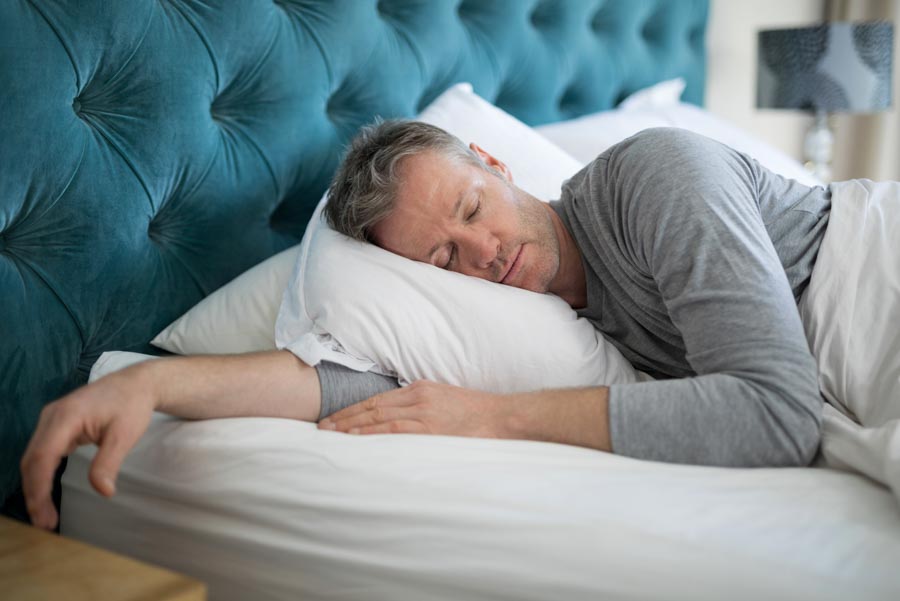If you struggle to fall asleep, stay asleep, or achieve high-quality sleep, you’re not alone. The Insomnia and Sleep Institute of Arizona has set the standard in sleep medicine in Arizona, treating all types of sleep disorders. The most common sleep disorders include sleep apnea, insomnia, narcolepsy, sleep-related movement disorders, circadian rhythm disorders, and parasomnias. Staffed by sleep specialists dedicated to sleep medicine and specialists voted “Top Doc” in the area for five consecutive years, The Insomnia and Sleep Institute has made a name for itself as the Face of Sleep Medicine in Phoenix.
Sleep apnea
Sleep apnea is relatively common, but also dangerous. It occurs when there are abnormal breathing pauses when you are asleep, which ultimately impacts the oxygen saturation of the body. Some of the typical signs of sleep apnea include snoring loudly and feeling tired during the day despite getting enough hours of sleep. There are different types of sleep apnea, but the most common is obstructive sleep apnea, or OSA.
Insomnia
Insomnia is also a well-known sleep disorder and very common. It presents as having difficulties falling or staying asleep. Insomnia is often worsened by other conditions or circumstances such as a lack of exercise, depression, chronic illnesses, some medications and poor sleep hygiene. Sleep hygiene is your personal set of practices (for better or worse) that affect your sleep and can include habits like looking at a screen right up until bedtime, having caffeine too late in the day, or not having a bedtime ritual, such as taking a relaxing bath.
Sleep-related movement disorders
Sleep-related movement disorders occur when there are physical movements, either voluntary or involuntary, when you are resting or asleep. The result of this disorder can lead to fatigue and insomnia. There are many types of sleep-related movement disorders and the most common is Restless Leg Syndrome. As you can see, many sleep disorders share co-morbidities. The goal at The Insomnia and Sleep Institute of Arizona is to begin with the right diagnosis. That’s why consultations are only with sleep specialists who will determine the root cause (diagnosis) first before moving on to the treatment.
Narcolepsy
Narcolepsy and hypersomnia are also common sleep disorders, although the former has become a bit confusing to a lot of people thanks to how it is often represented in the media. Narcolepsy is a chronic sleep disorder and typically makes people very drowsy in the daytime. Sometimes acute sleep attacks can occur. If you have narcolepsy, it is very challenging to stay awake for long stretches of time. Those with idiopathic hypersomnia have symptoms similar to narcolepsy, such as extreme sleepiness during the daytime. However, they also often sleep for excessively long periods. These two conditions can be confused with one another, which is a reminder of how important it is to only trust a sleep specialist with your diagnosis and treatment.
Circadian rhythm disorders
A Circadian Rhythm disorder can occur when your inherent “sleep-wake cycle” is not working correctly. There are different categories within this disorder, and each can reduce your quality of life. Those who consider themselves night owls may have this type of disorder (or may not, which is why a correct diagnosis is key). Jet lag is usually a temporary but acute type of Circadian Rhythm disorder.
Parasomnia disorders
Finally, Parasomnia disorders are included in the six most common types of sleep disorders. This disorder happens when a person gets aroused from the non-REM (rapid eye movement) or REM cycles of sleep—but does not awaken completely. Like other sleep disorders, there are many types of Parasomnia disorders such as sleep walking, sleep terrors, physically acting out dreams, or talking while asleep.
Quality of sleep is directly aligned with quality of life. Sleep is also related to your safety since driving with extreme drowsiness can be just as dangerous as driving under the influence. It’s time to reclaim your life and your peaceful nights. If you think you have a sleep disorder, you deserve to work with the leading sleep specialists in Arizona. Complete the contact form at The Insomnia and Sleep Institute to get started today.





